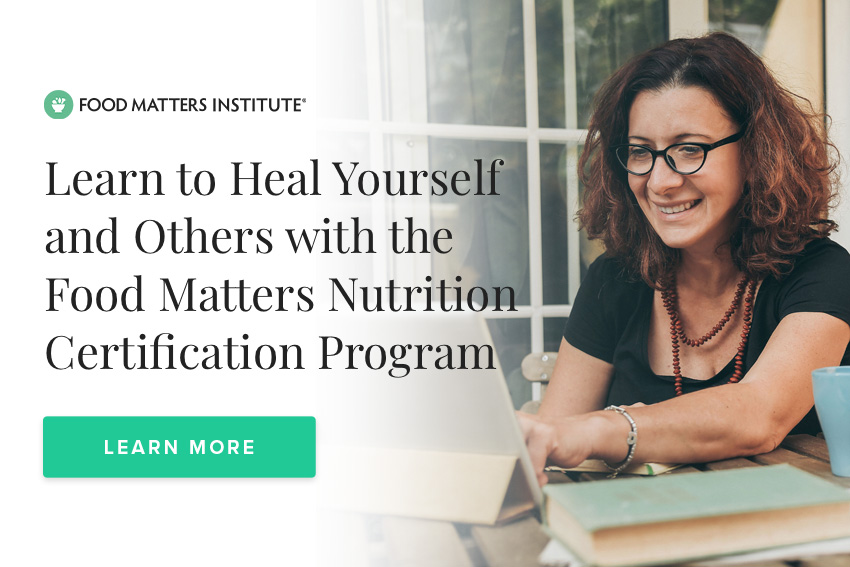Organic Vs. Spray-Free - What Is The Difference?
I often get asked about the difference between organic and spray-free produce, with many thinking it is the same thing. I therefore thought it might be time to clarify the point. Both can be great alternatives to conventional produce but you will need to read between the lines!
I know when Laurentine and I started investigating the food industry in a bid to help save my father from his declining health, we were initially overwhelmed at the amount of information we uncovered. There is so much confusion in the market in terms of labeling, that sometimes it can feel like you need a translator just to buy a bag of tomatoes.
However, eating well is actually very simple, as long as you know what to look out for.
ORGANIC
People often bandy around the term ‘organic’ to mean a food item that has been created naturally without the use of artificial chemicals.
However, not all ‘organics’ are created equal.
As consumers, it is therefore very important that we check the origin of the organic status when purchasing organic food.
The US Department of Agriculture (USDA) defines organic as follows:
“Organic is a labeling term that indicates that the food or other agricultural product has been produced through approved methods. These methods integrate cultural, biological, and mechanical practices that foster cycling of resources, promote ecological balance, and conserve biodiversity. Synthetic fertilizers, sewage sludge, irradiation, and genetic engineering may not be used. If you see the USDA organic seal, the product is certified organic and has 95 per cent or more organic content.”
The USDA sets rigid criteria for farms to meet in order to be certified organic, and in terms of labeling, it is this seal which holds the greatest weight.
Other organic labels in Australia, the United Kingdom or other countries can have similar regulations but all differ slightly in their interpretation of the label.
Amongst a host of requirements, farmers have to keep detailed records, have an on-site inspection by an official certifying agent, and pay all the fees associated with the certification. It is a full-on process and one that is very costly.
Unfortunately, as a result, it does often ostracize the small local farmer who cannot afford the accreditation or perhaps meet the requirements (some relate to farm size). This does slightly support the notion of a corporate factory-style organic farm system, which makes it a little bit uncool in my book.
SPRAY / PESTICIDE-FREE PRODUCE
So if certified organic is the most reliable label in terms of buying organic, what are the spray / pesticide-free labels about?
Many people think that if a foodstuff is itemized as being spray/pesticide-free, the produce must have been created without the use of synthetic additives/pesticides and thus all is hunky dory. Bingo - it’s organic! Right?
WRONG. BEWARE!
The terms ‘pesticide-free’ and ‘spray-free’ are used very loosely in agriculture and not regulated. There is no legally recognized definition, in fact, with regard to such labels, which can therefore be used in a misleading way.
For example, if something is labelled ‘spray-free’, the crop may have been spared from being sprayed, but the soil could have been primed with artificial fertilizer or the seeds might have been dipped in fungicide.
Likewise, if something is labelled ‘pesticide-free’, a farmer may not have used synthetic herbicides or insecticides, but may have used genetically modified plants or seeds.
Having said this, the term can be very handy for those farmers wishing to produce ‘clean’ food, but who cannot afford the costly time or expense of gaining the USDA accreditation, as I mentioned above.
SO WHAT TO DO?
KNOW YOUR FARMER!
This all goes back to knowing more about where your food comes from.
Shopping local, in my view, is always best. Get to know your local farmer at farmers markets and how their fruit and vegetables are produced. Ask people working at your local grocery store. Make your own informed decision based on whether you agree with the way they farm or not.
Questions to ask might be:
• If it is not certified organic, how is it grown?
• What do you mean by spray-free/pesticide-free?
• How do you protect your crops?
• Do you use GMO seeds?
• What do you feed your livestock?
• Do you rear your livestock hormone/chemical/antibiotic-free?
• Are your livestock free range/caged/pasture-based?
In this way, you regain control over what you eat and take power from the food monopolies. THIS is what eating well is all about. What do you think?
Do you have a passion for nutrition & natural healing?. Learn more about the Food Matters Nutrition Certification Program here.










